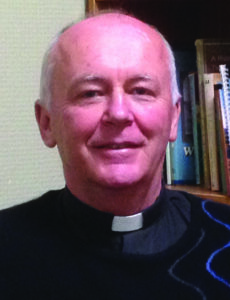The Interior Castle of St Teresa of Jesus of Ávila
Part 4 of 7
St Teresa begins this treatment by asking “the Holy Spirit to speak for me.” The Fourth Mansion is concerned for the first time with the truly supernatural, beyond the natural. It is not about our work in prayer, which has been the focus in the first three Mansions. Now it is God’s work inside us. It is about God’s gift to us of contemplative prayer, “for the Lord gives when He desires ... something most difficult to explain ... their beauty is great.”
It might be said that this is the most important Mansion about which St Teresa writes. Wonderful, in that God is doing something new in our soul. Simply put, God binds our soul with love. We cannot pray as before, as God does not want us to. A new type of prayer is given by God. We are being humbled as God becomes greater. The Fourth Mansions are places of transition which bring great delight and joy to the soul.
St Teresa begins with a verse from Psalm 118: “when you have enlarged my heart.” That verse summarises the Fourth Mansions. Deep within us, God has changed, enlarged and expanded our hearts. This is a peaceful, quiet change so it can be unnoticed.
St Teresa is the spiritual genius who explains this profound change within us. That is why she is a Doctor of Prayer for the entire Church. It is infused prayer. Prayer changes, and a person praying might be confused, saying “I cannot pray the way I used to, but at the same time I feel a peace and sense of being loved that I have not experienced before.” Such prayer involves a letting go, and that is always scary. There is a breakdown of our limited timebound concepts and knowledge of God that we have worked so hard on during the first three Mansions. These were, however, never God.
Now, no longer do we merely think about God, we are caught up in God himself. We begin to see God by experience, God in all of life, good and bad, joyful and sad. It is experiental knowledge, connatural knowing.
Now, it is not just knowing that God is our all and our wisdom and strength, but we begin to know it from within. God takes over the centre of our soul. No longer is God just part of our life, but is increasingly the focus of our hearts. This is contemplative prayer, which we cannot manufacture. As St Teresa writes, it “cannot be acquired by industry or diligence, though we can certainly prepare for it,” which is what the first three Mansions are about.
We feel held, absorbed or supsended in God. We begin to experience less of ourselves and more of God. Such prayer is a gift, and one sign of this new prayer is a sense of humour, a relaxed peaceful heart. There is no drama or self-centredness.
Practical steps
1] Be humble and grateful. Be calm and make no noise;
2] Do not think much but love much, especially those who like us least;
3] Watch out for the weeds in this garden! The garden is fertile for spiritual growth, but also fertile for weeds. Do not imagine you have reached the goal. Beware of spiritual pride. An astute modern Carmelite writer, Fr Gabriel Barry OCD, says these people need a psychiatrist, not a spiritual director!
4] Beware of a false counterfeit prayer that leaves us self-satisfied and wishing to share this with others. Instead, be silent and obedient to your spiritual director.
5] St Teresa is aware of the need for sound and wise spiritual direction and the training of spiritual directors in the wisdom of the Gospels and the Church’s spiritual tradition. She is aware that some spiritual directors are unsound.
6] This change in how we pray is important for the Church. One on-fire person does more for the Church than many mediocre people.
7] In the Fourth Mansions, we can be full of distractions in our imagination, while deep within us there is a sense of God at work.
8] It is not only in our heart that we are changed. In our ordinary life we are more peaceful, humble and listening. We are good company, with a smile. We are available to be used by God for the people God wishes us to serve. Trials will come, but will not overcome us. They are ways in which we can be Christ-like. They make us better, not bitter.
9] When do we enter the Fourth Mansions? When God chooses. It is a gift, not a reward. God alone chooses to fill our hearts with his love.
Finally, two helpful writers on these topics are David Torkington, and Fr Thomas Green SJ. Both have the gift of explaining what St Teresa is writing about.

 Entries(RSS)
Entries(RSS)